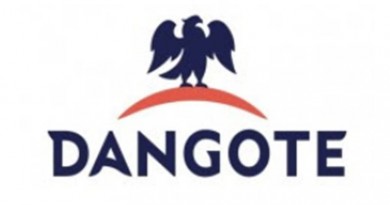Ogun State to electrify all motorcycles and tricycles under the e-mobility project
As part of a larger push to adopt sustainable transportation, Ogun State has started an e-mobility project that aims to replace all gasoline-powered motorbikes and tricycles with electricity-powered ones.
This week, the program was introduced by the state’s governor, Dapo Abiodun, who also dedicated a fleet of government buses that had been changed from being powered by gasoline to compressed natural gas (CNG). In July, Abiodun revealed on social media that the State intended to restructure its public transportation system.
“Over the next three to four months, the good people of our dear State will begin to enjoy being moved from one point to another at regular transport fares that were obtained before deregulation,” the statement reads. “Our people will begin to see more electricity powered motorcycles and tricycles in our state.”
The Nigerian government declared in May that within the following ten years, at least one-third of the EVs sold in the country will be produced domestically.
The National Automotive Industry Development Plan (NAIDP) was ratified by Nigeria in an effort to increase its manufacturing and technological capabilities in the automotive sector. The elimination of Nigeria’s gasoline subsidy is expected to “substantially” boost the electric mobility industry, according to a 2023 report.
“This significant achievement follows the successful conversion of all our government-owned buses from petrol-dependent to the safer and more sustainable CNG Buses,” the Ogun State Government stated in a statement this week regarding the e-mobility program.
On October 30, Abiodun stated on X that the administration had taken “a proactive step by developing the Ogun State Energy Transition policy” about a year earlier. We are pleased to inform that its implementation has begun today.
“We’ve introduced compressed natural gas (CNG)-fueled mass transit buses as an economical and environmentally beneficial choice for transportation throughout our state as part of this forward-thinking program. These CNG buses have a number of benefits over conventional automobiles.
“We anticipated the liberalization of the downstream sector and the elimination of fuel subsidies, which is what motivated us to adopt CNG buses. Our goal was to develop affordable and long-lasting fixes for our public transit system. According to Abiodun, certain buses would be reserved for the use of employees, students, and civil servants.
Some of these buses will also be used to service the Onikolobo-Idi-Aba corridor, the Ita-Oshin to the Adatan corridor, and Kuto down to Professor Wole Soyinka Train Station in Laderin. We have also set aside some of these buses to run from Mowe-Ibafo to Berger in Lagos State.
“We will be sending buses to our major cities, Sagamu, Ota, and Ijebu Ode, as we expand our fleet, to provide mass transportation for our citizens, especially the students.”
The proposed red and blue train lines, which will be operated in cooperation with the Lagos State Government, are scheduled to begin service in 2024, according to Abiodun’s announcement last week.




